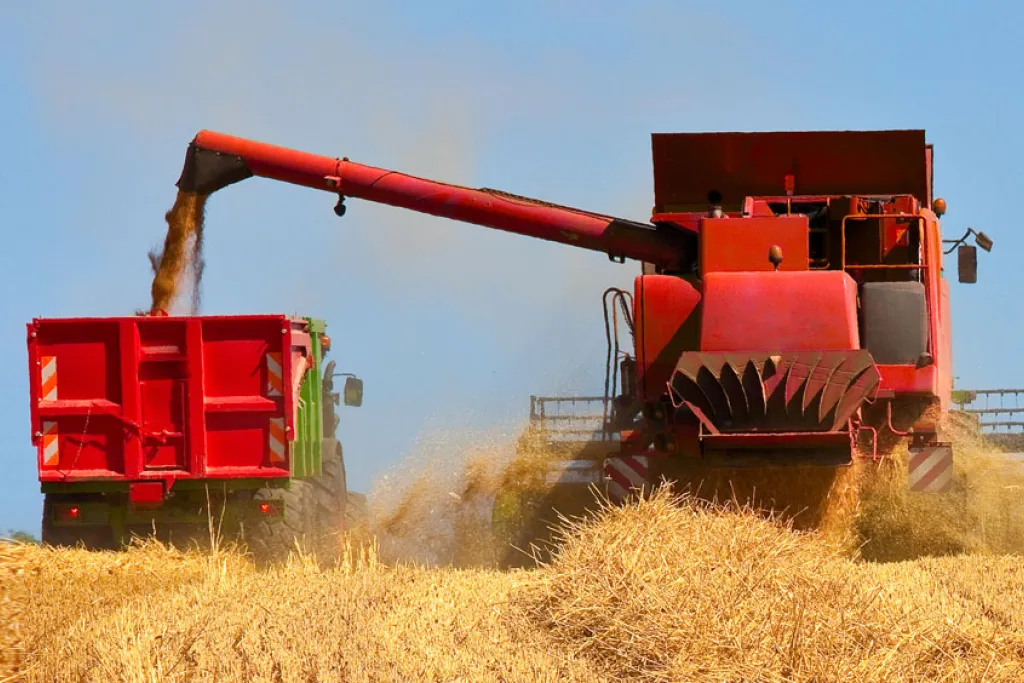In addition to the regular priority areas, the AFRI Foundational and Applied Science Request for Application has crosscutting program area priorities that address two or more of the AFRI priority areas.
Deadlines, project periods, maximum budgets, project and grant types, and other information will vary by program area priority, please see the descriptions in Part I, C of the RFA for specifics.
The crosscutting program area priorities are described briefly below, but applicants should see the RFA for full information on each:
- Agricultural Microbiomes in Plant Systems and Natural Resources
- Critical Agricultural Research and Extension (CARE)
- Data Science for Food and Agricultural Systems (DSFAS)
- Inter-Disciplinary Engagement in Animal Systems (IDEAS)
- Rapid Response to Extreme Weather Events Across Food and Agricultural Systems
- Agricultural Biosecurity
- Extension, Education & USDA Climate Hubs Partnership
- AFRI Commodity Board Co-Funding Topics
Agricultural Microbiomes in Plant Systems and Natural Resources (A1402)
Microbiome research is critical for improving agricultural productivity, sustainability of agricultural ecosystems, and safety of the food supply. Understanding the multipartite interactions among the host, environment, and the microbiome is critical for improving and sustaining agricultural productivity and quality in plant systems, associated natural resources, and human nutrition and health. Plant productivity includes biotic factors affecting plant health such as either pests, diseases, or vectors as well as abiotic factors. The goal is to help fill major knowledge gaps in characterizing agricultural microbiomes and microbiome functions across agricultural production systems, and natural resources through crosscutting projects.
Critical Agricultural Research and Extension (CARE) (A1701)
Despite prior investments in basic and applied research, critical problems continue to impede the efficient production and protection of agriculturally-important plants and animals. These problems may be local, regional, or national; often call for work in one or more scientific disciplines; and need immediate attention to meet producer needs. Finding solutions to these critical problems requires partnership and close coordination among researchers, extension experts, and producers. CARE projects are designed to yield solutions or practices that can be rapidly implemented to meet pressing needs limiting agricultural production.
Data Science for Food and Agricultural Systems (DSFAS) (A1541)
The DSFAS program area priority seeks to catalyze activities that harness big data for synthesizing new knowledge, making predictive decisions, and fostering data-supported innovation in agriculture.
DSFAS focuses on data science to enable systems and communities to effectively utilize data, improve resource management, and integrate new technologies and approaches to further U.S. food and agriculture enterprises. This program area priority will support projects that examine the value of data for small and large farmers, as well as the agricultural and food industries, and gain an understanding of how data can impact the agricultural and food supply chain, reduce food waste and loss, improve consumer health, environmental and natural resource management, affect the structure of U.S. food and agriculture sectors, and increase U.S. competitiveness.
Inter-Disciplinary Engagement in Animal Systems (IDEAS) (A1261)
Given the complexity of social, cultural, environmental, economic, and technologic challenges facing the food and agriculture system in the United States, broader views at the intersection among multiple disciplines are essential. This will spur creativity, inspire innovation, and develop solutions. The goal is to bridge traditional disciplinary divides and address complex issues in animal agriculture. This will require new interdisciplinary work anchored in animal and veterinary medical sciences to support food and agriculture production.
Rapid Response to Extreme Weather Events Across Food and Agricultural Systems (A1712)
Climate change exacerbates the risk of extreme weather-related disasters, caused by naturally occurring hazards such as droughts, extreme temperatures, wildfires, tornados, floods, hurricanes, tropical storms, and blizzards that often disrupt agricultural, forestry, and rangeland production systems. Rapid responses to extreme weather events are critical to maintaining a secure, accessible, safe, nutritious, affordable, and abundant food supply. Innovative extension and applied research efforts are needed to alleviate the impacts of extreme weather and disasters across food and agricultural systems. The Rapid Response to Extreme Weather program area priority, is designed to rapidly deploy strategies and fill knowledge and information gaps to protect the nation’s food and agricultural supply chains, from production through consumption, during and after extreme weather and disasters. For further information, contact: afri-rapidresponse@usda.gov
Agricultural Biosecurity (A1181)
The goal is to increase our national capacity to prevent, rapidly detect, and respond to biological threats to the U.S. agriculture and food supply. The projects aimed at increasing agricultural biosecurity at the regional and national levels, and across the public and private sectors will be supported. Addressing the vulnerabilities of our nation’s food and agricultural system requires a concerted effort, sustained investment, and a coordinated strategy that protects the U.S. food and agriculture system against threats from pests, diseases, contaminants, and disasters.
Extension, Education & USDA Climate Hubs Partnership (A1721)
This program area priority seeks to provide effective, translatable, and scalable approaches to address climate change through regional partnerships including the USDA Climate Hubs and extension (e.g., the Cooperative Extension Service). Projects support the delivery of science-based, region-specific information and technologies to agricultural and natural resource managers in order to enable climate-informed decision-making and provide access to assistance to implement those decisions.
Socioeconomic impacts of climate change are of special interest and importance, including topics such as net-zero emissions agriculture, working lands adapted to climate change, a diverse workforce capable of communicating about climate change effectively, and climate justice including equal opportunities and burden sharing.
WEBINAR
- Extension, Education & USDA Climate Hubs Partnership (A1721), Recorded May 13, 2021
Watch on YouTube
AFRI Commodity Board Co-Funding Topics (A1811)
NIFA and various commodity boards are seeking to co-fund research projects relevant to the respective commodity board. Topics will vary from year to year, please see the program description under Crosscutting Programs in Part I, C of the RFA for current topics. Commodity boards interested in potential co-funding topics under AFRI can learn more on NIFA’s page about the process to submit topics.

